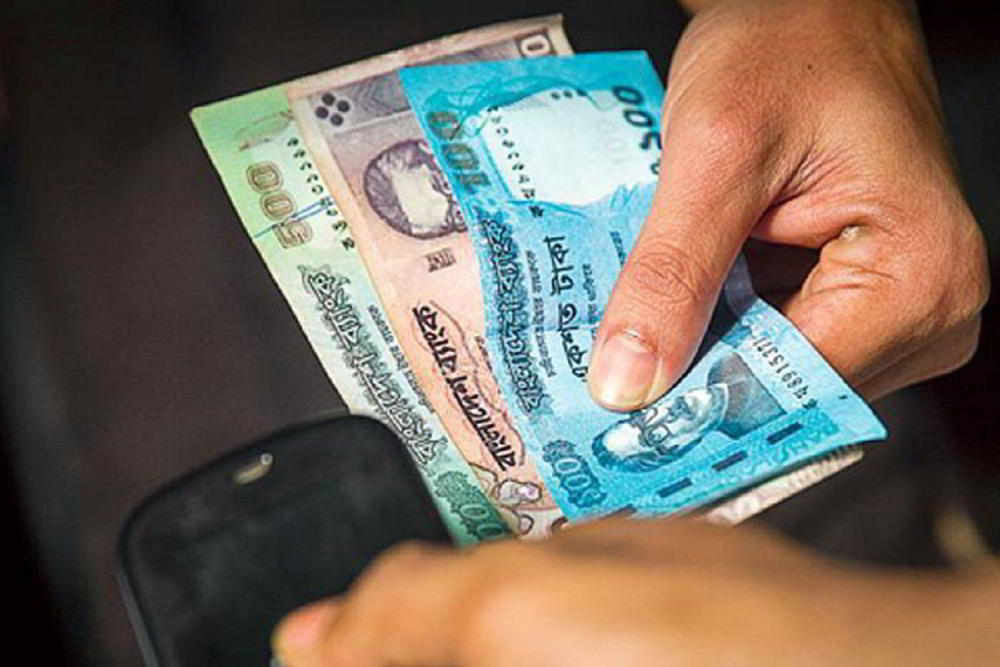
A survey jointly conducted by Dhaka University and Bangladesh Bank in December titled “An Impact Study on Mobile Financial Services in Bangladesh” has found that the high service fee charged by mobile financial service (MFS) operators is impeding the growth of MFS services in the country. Some 1,065 households and 265 small and medium business firms from 36 districts participated in the survey, which you could confidently call that is representative of the current MFS service users. The report says about 53.25 percent of the respondents identified high charge as a disadvantage of using MFS services. From the Daily Star:
“Some 53.25 percent of the respondents identified the high charge as a major disadvantage of MFS, according to survey report “An Impact Study on Mobile Financial Services in Bangladesh”. The survey was conducted among 1,065 households and 265 small and medium business firms spanning 36 districts. Currently, the MFS operators charge 1.85 percent for withdrawing cash but agents take 2 percent from the customers. As a result, a customer has to pay Tk20 for taking out Tk 1,000. Kamal Qadir, chief executive of bKash, agrees that the charge is on the high side, but adds that not all services were charged.”
Let’s keep whether a higher charge is disadvantageous to the users or hamper overall grow beside the point and instead think what is the motivation of MFS service providers to maintain such a high charge and that too consistently without changing the charges despite a tremendous growth in the number of users.
If one applies the argument of the cost associated with providing MFS service as a logic for such high charges, which Mr. Quadir agrees that the charge is on the high side but it also comes with free of cost service, the cost should go down as the number of users grows.
According to Bangladesh Bank, there are some 6.67 crore MFS account holders in the country and some Tk 1,000 crore is being transacted through using MFS services in the country, for which there are about 18 of them, bKash being the largest by a huge margin. Despite the huge growth in the number of users over the past years, no MFS providers tried a different charge structure. MFS charge is a relatively old issue. Previously we have seen discussion around user discontent due to high charges. MFS companies, as usual, replied previously that the charge is comparable to other similar services.
However, the question remains despite the higher charge MFS users continue to use the service. It could be because there is no low-cost alternative. Still, consumers could signal a response in the market. That did not happen. Secondly, no other player tried a significantly lower charge to attract users in the market. More than consumer discontent, this has surprised me more. It also indicates that the MFS market has not been competitive enough, either due to regulatory reasons or purely market reasons, to force a charge adjustment in the market so far.
First, from the Daily Star:
“Illegal remittance from foreign countries and extortion by criminals using the platform are the other two big challenges, found the survey conducted by Bangladesh Bank and the University of Dhaka in December last year.
(........)
A syndicate in the countries collect money from migrant workers and get local MFS agents to load accounts of relatives of the expatriate Bangladeshis for a cut. Due to the illicit fund transfer from abroad, remittance inflow dropped 14.47 percent year-on-year to $12.77 billion in fiscal 2016-17. bKash, the leading MFS provider, was being misused to channel money home, found an investigation by the BB.”
This allegation against MFS services, particularly against bKash has been there for a long time. Let me explain how it works. According to Bangladesh Bank's findings, Bangladeshis working abroad send money via hundi, an illegal means of money transaction, to avoid charges and expenses. These people collect money in groups and then ask their local representatives to send money to the individual sender. In reality, the said remittance does not come to the country, only that local representative or partner remit each person or their family locally. Many migrants workers use this option probably because of the low cost as well because they could not afford to use a formal channel for various reasons including legal ones. Essentially, bKash is being used for the local remittance here and not for international money transfer. Now, bKash certainly has a role to play. It has to get better at understanding its users and be able to track transactions. But the greater responsibility lies on the stakeholders including BB who are responsible for remittance collection.
The most effective remedy would be identifying why people send remittance illegally in the first place instead of asking MFS players in Dhaka to address these issues - such as because probably sending remittance via legal means is expensive or inconvenient - and then taking effective measures to address those issues.
